Grieving looks and feels different in a time of pandemic
By Jan Jarvis
The minute Dana Litt saw her mother on FaceTime she had no doubts about why she was calling.
“My mom was crying and I just knew,” Dr. Litt said. “I was hearing some pretty shattering news, and there was literally nothing I could do.”
The feeling of helplessness that Dr. Litt endured is being experienced by thousands of others across the nation as they grieve from a distance. Her uncle, stage and film actor Mark Blum, was living in New York when he died from COVID-19. As much as she wanted to comfort her mother, she felt helpless, said Dr. Litt, PhD, Associate Professor of Health Behavior and Health Systems in the School of Public Health.
“FaceTime is not a replacement for hugs and being able to cry together,” she said. “You just can’t comfort someone like you used to.”
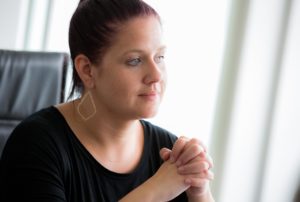
In the age of COVID-19, death, grief and loss look different from anything people have experienced before, said Emily Mire, PhD, Director Care and Civility at HSC.
Instead of sitting by the bedside of a loved one, families are saying their final good-byes over the phone.
“Being able to say good-bye over the phone can be comforting since hearing is the last sense to go,” said Janet Lieto, DO, FACOFP, CMD, who works at Community Health Care of Texas Inpatient Hospice Unit.
But it can also leave some people feeling helpless, depressed and guilty.
“There may be a need to release their expectations of how they are supposed to grieve,” Dr. Mire said. “They can’t navigate their grief based on how it looked in the past because it is going to look different now.”
Dr. Litt knows this well.
“Grief is always hard,” she said. “But grieving in the middle of a pandemic is entirely different.”
It is common for people to feel guilty because they’re not there when someone dies, said Susan Franks, PhD, Associate Professor of Family Medicine and a Clinical Health Psychologist.
People feel guilty because they think the dying person is sad or disappointed because their loved ones are not at their side. But research shows dying people are often on the edge of consciousness.
“We project our reality onto the dying person,” she said. “But they are not entirely in the world with us.”
Trying to imagine the person’s last moments is usually not helpful.
“You can imagine them as lonely and scared, but that is just not the way it is. People are in different transitional stages as they approach death,” she said.
Being in a crisis makes communicating one’s wishes much more difficult, said Dr. Lieto, Associate Professor of Medicine and Board Certified in Geriatrics and Hospice and Palliative Medicine.
“It is important to have these conversations before encountering an illness or crisis. The best gift you can give your loved ones, is a copy of your advance directives that outlines your goals for your medical care,” she said. “In addition you should have these conversations with your family, loved ones and the individual who you chose to be your durable Medical Power of Attorney.”
If an individual doesn’t write down their wishes, they put an undue amount of stress on their loved ones because they don’t know what the person wants, she said.
“Advance directives are not just for cancer patients and the elderly,” Dr. Lieto said.
Beyond the sadness at the time of death, there are many reasons why a pandemic makes grief more complicated, Dr. Franks said.
People say good-bye, then they grieve in isolation at a time when they most want to share their feelings with others.
For some, the sense of loss extends beyond the death of a loved one. They might also be coping with the loss of income and jobs. They’re grieving the loss of a loved one at the same time they are struggling to pay the bills and buy food.
The losses can pile up quickly.
Losing a loved one during COVID-19 is further complicated by the inability to practice rituals surrounding death.
People often need these rituals; they need to go to the funeral, share food afterward and just be together, Dr. Franks said.
The Jewish tradition of sitting shiva, a weeklong mourning period when family members gather, is simply not possible now, Dr. Litt said.
“We want to be all together, and we just can’t do that,” she said. “For me, I’m a person who wants to fix things, and I just wish there was more I could do.”
She takes comfort in knowing that her family is planning a celebration of life for her uncle when they can be reunited, Dr. Litt said.
While being alone during this time is difficult, grieving at home may also provide an opportunity, Dr. Mire said.
“Sometimes solitude is helpful,” she said. “It allow us to be reflective.”
Here’s a link to information about how to write an advance directive: https://hhs.texas.gov/laws-regulations/forms/advance-directives
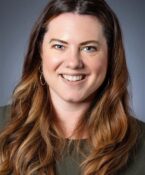
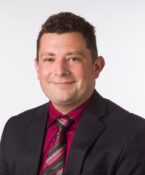
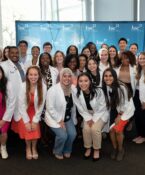
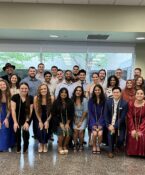

Social media